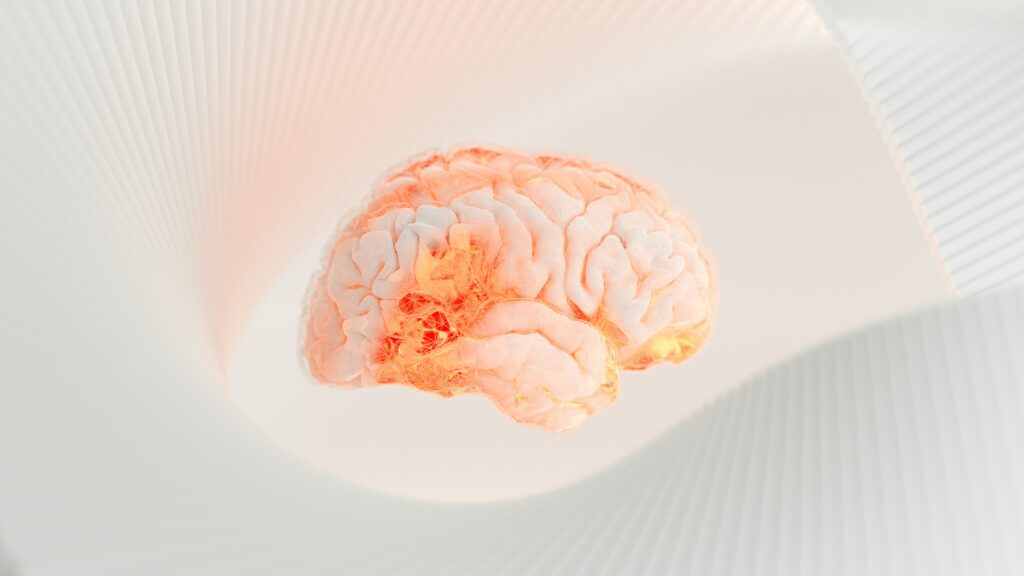Over the past decade, artificial intelligence (AI) has entered nearly every corner of our lives—from how we shop and learn to how we seek emotional support. Dozens of mental health apps now claim to offer instant “therapy” through chatbots or voice-based companions, promising comfort at any hour of the day.
While these tools might seem like a convenient step forward, they also raise an important question: Can AI truly replace your therapist?
The answer is a clear and definitive no.
AI may imitate human conversation, but it cannot replicate what makes therapy transformative: empathy, attunement, and genuine human connection. Healing does not happen through code—it happens through relationship, reflection, and presence. At Awakened Path Counseling, we believe that emotional recovery and growth are deeply human experiences that no algorithm can replace.
What AI “Therapy” Really Is—and Why It Falls Short
AI mental health apps and chatbots are designed to simulate certain aspects of therapy, often using scripted prompts or natural-language processing. They can analyze your messages, recognize key emotional words, and offer automated feedback that mimics compassion.
However, these interactions are based on data patterns—not lived empathy. AI can respond to your sadness, but it cannot feel it. It can suggest a coping exercise, but it cannot sit with you in your grief, recognize your hesitation, or hold silence with you until words return.
Even the most advanced AI lacks intuition, nuance, and moral discernment—all critical components of effective therapy.
The Risks of Relying on AI for Emotional Healing
The illusion of connection created by chatbots can be deceptively comforting. Yet, relying on AI for emotional support carries significant psychological and ethical risks.
1. Emotional Misattunement
Therapists are trained to notice tone, body language, and subtle shifts in expression that reveal how you really feel. A chatbot cannot discern irony, trauma responses, or cultural nuances—it responds only to text. The risk is that people may feel invalidated or unseen, even if they’re told the “right” thing.
2. Lack of Human Safety and Accountability
When someone expresses distress or suicidal ideation to a real therapist, immediate support and crisis intervention protocols are in place. AI systems have no clinical judgment. They cannot assess safety, escalate care, or ensure a person’s well-being. In some cases, these gaps could be life-threatening.
3. Data and Privacy Concerns
Unlike licensed clinicians who follow HIPAA and professional ethics, many AI apps collect sensitive emotional data without clear consent. User conversations can be stored, analyzed, or sold to third parties for profit. When therapy becomes a product, privacy becomes a casualty.
4. False Promises of Connection
A chatbot may offer comforting phrases like “That sounds hard” or “I’m here for you,” but these words are programmed—not heartfelt. When people mistake these mechanical responses for genuine empathy, they risk further loneliness and emotional detachment.
In short, AI doesn’t heal—it simulates care. True therapy involves vulnerability, attunement, and relational safety, none of which can be replicated by code.
Why Real Human Connection Is Irreplaceable
At the heart of therapy lies something technology cannot produce: a real relationship between two human beings. This connection is not a by-product of treatment—it is the treatment.
When you sit with a therapist, you engage in an experience that integrates empathy, intuition, and compassion. A skilled therapist not only hears your words but feels the emotional currents beneath them. They respond not from a script, but from presence, attunement, and deep understanding.
Research consistently shows that the therapeutic alliance—the bond of trust and collaboration between client and therapist—is one of the strongest predictors of healing outcomes. It’s not the app or even the specific technique that heals—it’s the relationship.
A 2021 study found that this human connection was the single most important factor in successful therapy outcomes, regardless of the therapeutic model used. The warmth, empathy, and responsiveness of a real therapist are what help people feel safe enough to grow and change.
The Dangers of Dehumanizing Mental Health Care
When mental health becomes a service delivered by algorithms, we risk losing what makes healing sacred—our shared humanity.
AI cannot interpret cultural identity, trauma history, or body language. It cannot help clients make meaning out of their pain, or guide them toward the deeper self-awareness that leads to transformation.
At Awakened Path Counseling, our therapists understand that mental health challenges are not simply data points to analyze. They are expressions of the human experience—shaped by body, mind, and spirit. Emotional wounds require compassionate presence, not automated responses.
Holistic therapy embraces this complexity by treating the person as a whole being—not a user to be “optimized.”

Failures of AI in Mental Health — Why the Risks Are Real
As the use of AI-driven mental health chatbots proliferates, alarming failure cases are revealing how these tools can do more harm than good—especially for vulnerable individuals. One high-profile example involved a chatbot from the National Eating Disorders Association (NEDA) called “Tessa,” which was shut down after it gave dangerously misguided advice to users with eating disorders. The bot recommended calorie-cutting strategies and weight-loss goals—behaviors that directly contradicted the organization’s own body-positivity mission and clinical best practices.
Additionally, a review of large language-model (LLM) chatbots used in eating-disorder recovery found that some responses were not only unhelpful but potentially harmful. In one study, participants with eating disorders trusted the chatbot’s suggestions—even when the suggestions lacked safety-monitoring or clinical oversight.
These examples highlight several serious flaws of AI in mental health contexts:
- Lack of clinical judgment: AI doesn’t assess nuance, safety risk, or emergent crises. It may inadvertently validate harmful behaviors or thoughts rather than intervene.
- No real empathy: Chatbots cannot genuinely attune to the emotional and somatic experience of a person—only simulate responses.
- Reinforcement of bias: Because many AI models are trained on internet-wide data, they may reflect harmful societal viewpoints—such as stigmas around weight, body image, or mental illness.
- False sense of safety: Users may trust AI as a safe zone, but when the AI fails (or is mis-trained), the consequences can be more damaging than no support at all.
Holistic Therapy: A Human-Centered Alternative
At Awakened Path Counseling, we take a holistic approach that integrates both traditional psychotherapy and transpersonal healing methods. Our clinicians draw on neuroscience, mindfulness, integrative medicine, and somatic awareness to support emotional and physical balance.
Holistic therapy is inherently relational—it thrives on authentic human connection. Each session is a co-created process where the therapist and client explore thoughts, emotions, and behaviors together in real time.
This approach honors:
- Emotional attunement: Building trust through empathy and genuine presence.
- Mind-body awareness: Understanding how emotional pain manifests physically.
- Spiritual growth: Exploring meaning and purpose beyond immediate struggles.
Where AI offers artificial empathy, holistic therapy offers genuine compassion. Where algorithms process inputs, therapists perceive the whole person.
Healing requires more than pattern recognition—it requires witnessing, intuition, and care.
The Myth of Quick Fixes
AI therapy apps promise immediate answers, quick relief, and “on-demand” emotional support. But mental health doesn’t follow that timeline. Healing is not a transaction—it’s a journey.
True progress often comes from difficult conversations, uncomfortable emotions, and sustained effort over time. A chatbot may provide distraction, but it cannot hold space for grief, fear, or shame in the way a compassionate therapist can.
Real therapy is not about instant comfort—it’s about enduring transformation.
At Awakened Path Counseling, we see therapy as a living relationship. Our goal isn’t to offer preprogrammed solutions but to guide you toward self-understanding, growth, and balance.
The Ethical and Emotional Risks of AI in Therapy
Beyond privacy, there’s a deeper moral issue with replacing human therapists with AI: it commodifies care.
When compassion is automated, it loses its essence. Emotional healing cannot be mass-produced or outsourced—it must be cultivated through genuine, reciprocal human interaction.
Moreover, AI systems are trained on biased data. If the datasets fail to represent cultural diversity, socioeconomic backgrounds, or trauma experiences, the resulting advice may unintentionally perpetuate harm.
The National Institutes of Health warns that AI in mental health remains “experimental and ethically unregulated,” with significant concerns around accuracy, cultural bias, and safety.
In contrast, licensed therapists are trained to approach each client as an individual—with empathy, ethical responsibility, and cultural awareness.
Reclaiming Humanity in Healing
At its best, therapy reminds us that healing begins in relationship—through being seen, heard, and accepted as we are.
A human therapist can sense when to pause, when to challenge, and when to hold silence. They can celebrate your victories, mourn your losses, and walk with you through uncertainty. AI can only generate words—it cannot offer wisdom born from experience, empathy, or intuition.
At Awakened Path Counseling, our therapists integrate traditional and transpersonal practices—such as mindfulness, meditation, and breathwork—to help you reconnect with yourself on every level. This is healing that honors your humanity, not data-driven behavior management.
You are not a set of metrics or inputs. You are a complex, beautiful, evolving being—and your healing deserves the presence of another human being to walk beside you.
Healing Requires Human Connection
Artificial intelligence will continue to advance, but it will never replace the essence of therapy. Algorithms can analyze, mimic, and automate—but they cannot feel.
If you are seeking mental health care that honors the depth of your humanity, choose connection over convenience. Choose therapy that sees you, listens to you, and helps you rediscover your inner strength.
At Awakened Path Counseling, our holistic therapists in New Jersey are committed to providing compassionate, integrative, and deeply human care. We believe that true healing begins when two people meet in presence—and that’s something no machine can ever replicate. Connect with us today to begin your journey to healing.


